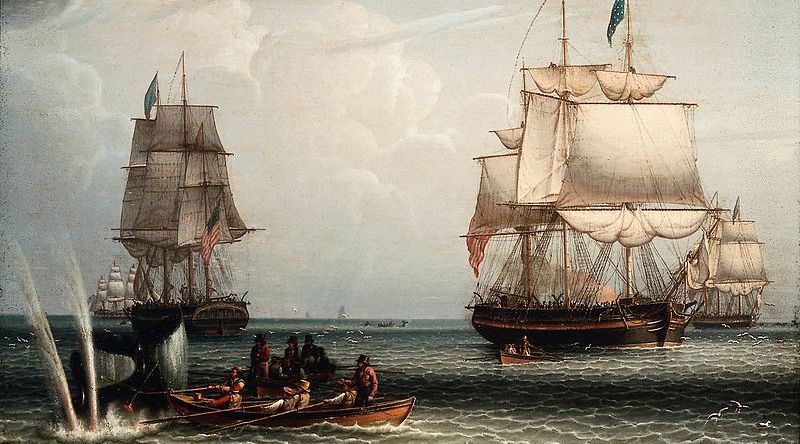When, as a lad, I’d look out my window at the sea, I wanted to know what was out there. Was it the boat-shaped bookcase in my room? The schooner-speckled waste-basket? The navy blue, well . . . everything? Whatever it was, the sea called.
Still, a ten year old cannot go to sea, so he makes do. Books usually suffice. Blackbeard, Captain Nemo, Odysseus—all great seafarers in themselves—can fill a boy’s mind with adventures of fantastical proportions: fighting giant monsters, encounters with vicious mermaids, and epic naval battles. For all the great stories sailors have told, however, one stands out as unsurpassed, known for its famous first words. No, not “Call me Ishmael.” It goes like this: “In the beginning God created heaven, and earth. And the earth was void and empty, and darkness was upon the face of the deep; and the spirit of God moved over the waters” (Gen 1:1–2). How the child’s mind can sail away!
Ernest Hemingway referred to the Bible as “The Sea Book,” and to call it such isn’t really exaggerating. Sacred Scripture provides a wealth of verses from “the watery part of the world.” If the first chapters of Genesis weren’t proof enough, we are told God made the sea, and it belongs to him (Ps 95:5). We find out that the Lord set the world on the seas, on the waters he made it firm (Ps 24:2). He turned the sea into dry land for Israel, one of the most oft-repeated refrains in all of Scripture (Exod 14:10–31; Ps 106:9; Isa 51:10; Wis 10:18; and many others); and the Jordan, too (Josh 4:23; Ps 114:5). The ships of Tarshish bring treasure (1 Kgs 10:22; Ezek 27:25), mortal man is made to walk on water (Matt 14:22–32), and the deep gives up its dead for judgment (Rev 20:13).
Christ chooses a sea story, that of Jonah the prophet, to teach about his death and resurrection:
An evil and unfaithful generation seeks a sign, but no sign will be given it except the sign of Jonah the prophet. Just as Jonah was in the belly of the whale three days and three nights, so will the Son of Man be in the heart of the earth three days and three nights. (Matt 12:39–40)
Never mind the details of how he got in the water. Like Jonah, the whaler was in the hands of God when he set out on a voyage. In the preeminent whaling saga, Herman Melville’s Moby Dick, the crew of the whaleship Pequod hunt for the great white whale. Unlike ancient sea myths or nineteenth century science fiction novels, the whalers of New England, like those in Moby Dick, were real, and they chased something real: those elusive, mysterious, and powerful Leviathans, whose rich oil fed the lamps of all the world.
Christ likened himself to Jonah, but he also bears resemblance to the whale. Though whaling ships no longer set sail from New London or New Bedford, the whale still remains, plumbing the deep. Though sometimes Christ seems no longer known and honored in the world, he still remains: the king of the sea, the sea being the world, the Church, and each human heart. The sea may be at peace or rage, but the whale never wavers in its course. So also with Christ. At last, the whale is pierced with a lance, and his oil enlightens the world. Christ is pierced with a lance, and his blood redeems the universe.
Stubb, a mate of the Pequod, is presented as a jovial man of calm wisdom, but he is also counted unique for a strange habit: he eats whale. And what is more, he eats it by the light of the very oil from that same whale. From the boy with the toy ship to the old man in the Sou’wester—may we Christian sailors, like Mr. Stubb with his cetacean, feed on the Lord’s Body and Blood, enlightened by the Word who is the light of the world (John 8:12).
✠
Image: Robert Salmon, South Sea Whale Fishing II







